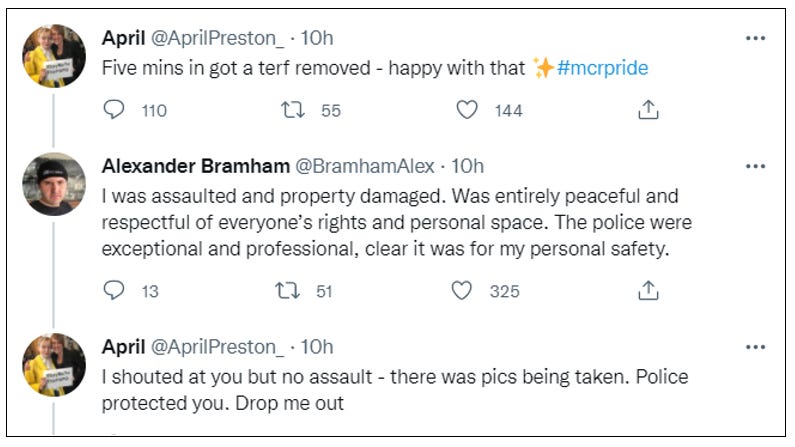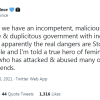Victoria Smith starts by thanking the men who tell women what we’re allowed to be afraid of for wading in to correct our perceptions of reality when they must be so busy.
To be fair, it is not our fault. We are not authoritative; we are not you. We are taught from an early age to doubt ourselves, to see our own versions of reality as suspect, requiring external confirmation from the experts, the men. When you are not considered a reliable witness to your own experiences, things become very confusing. This, I guess, is where you step in.
And, of course, this very stepping in is part of the process of teaching female people from an early age that we don’t know our ass from our elbow.
What do we fear most of all? Hard to say. That is, the answer is obvious, but it’s very hard to say it without having one’s sanity or one’s morality — one’s capacity for kindness — questioned. It’s easier to defer to you. We can do this for years. We can even start to believe it.
I think the mention of kindness is a nod to Robin Ince’s generous help yesterday.
Do you know how many abusive men are considered lovely men, gentle men, kind men, by those who don’t witness what happens behind closed doors? To be fair, you probably have heard this; that’s another cliché. But also, how many abused women defend these men, doubt their own perceptions, have been beaten down so many times they’re not sure if it isn’t their fault? Do you know it’s possible to be ashamed of your own fears? To think, well, maybe this does mean I’m a bad person? You reinforce that shame each time you lecture women on fears you deem to be misplaced. Still, you’re the expert.
…
That you — male people — are complicit in the creation of our fear, that you benefit from it, that it’s your dominance that enables you to breeze in, puffed up with pride at your own magnanimity, to tell us we’re allowed to feel threatened by this, but not that … I imagine you don’t really think about this.
The Robin Inces certainly show no sign of ever thinking about it. If they did they wouldn’t pat themselves on the back for being motivated by kindness while we are motivated by sheer evil.
You think it an act of generosity to allow us to be fearful of some male people, but not others. As though fear itself is a luxury. We mustn’t be greedy; mustn’t take too much. That you should be offering safety — that a kind, empathetic response to female fear would be to look at the violence from which you benefit, question the class to which you belong — does not cross your mind. You think you float above the worst things men do.
Naturally – because they are all about the kindness.







